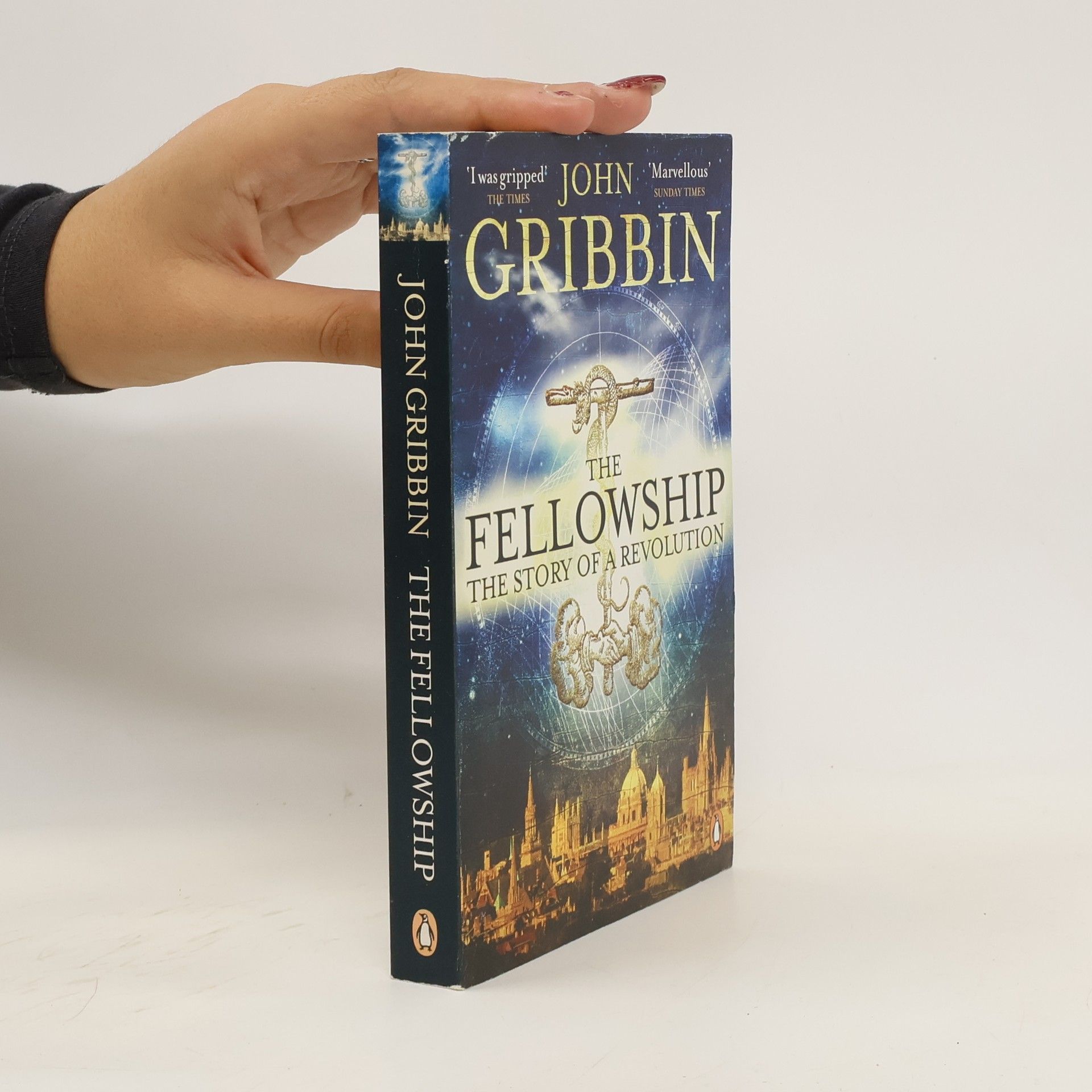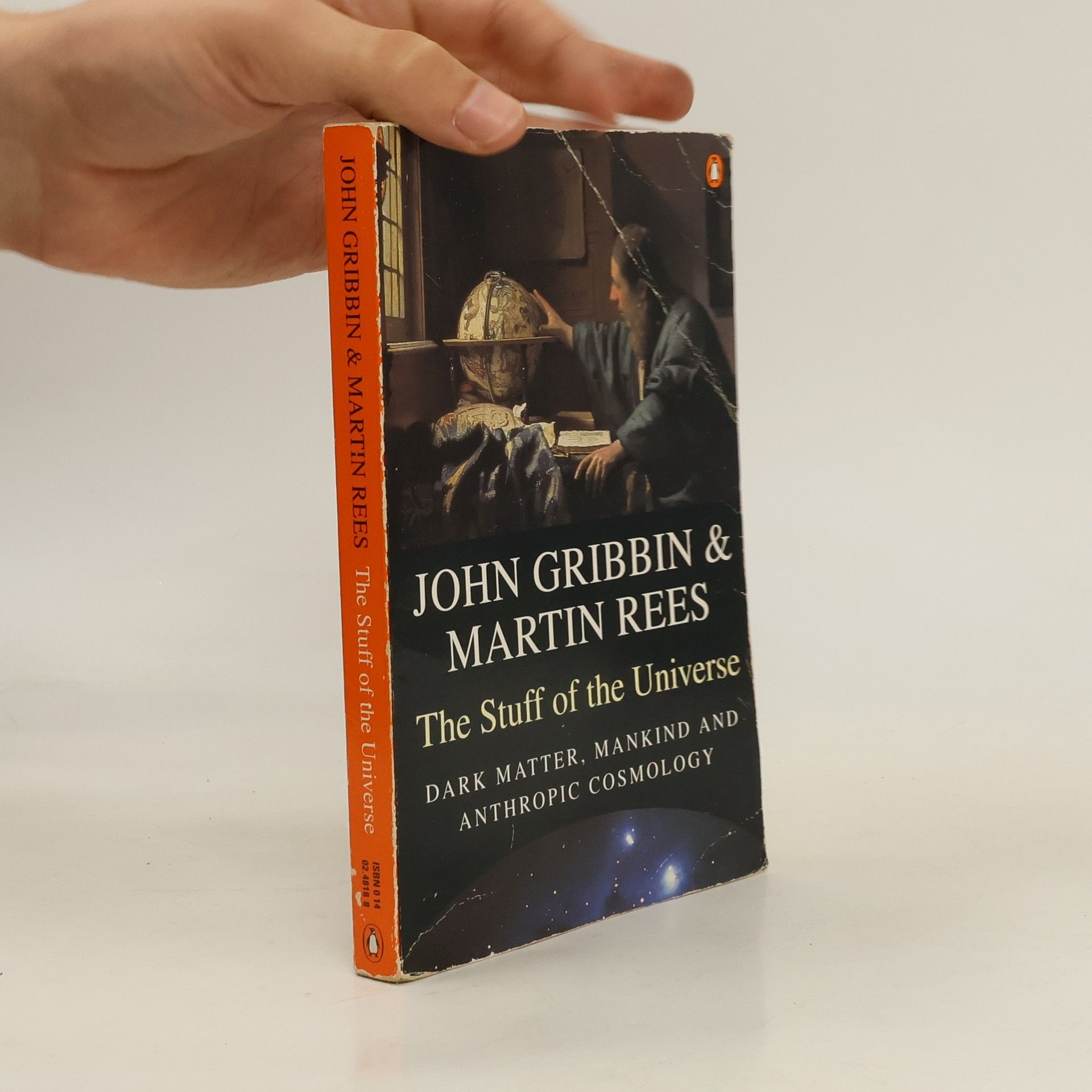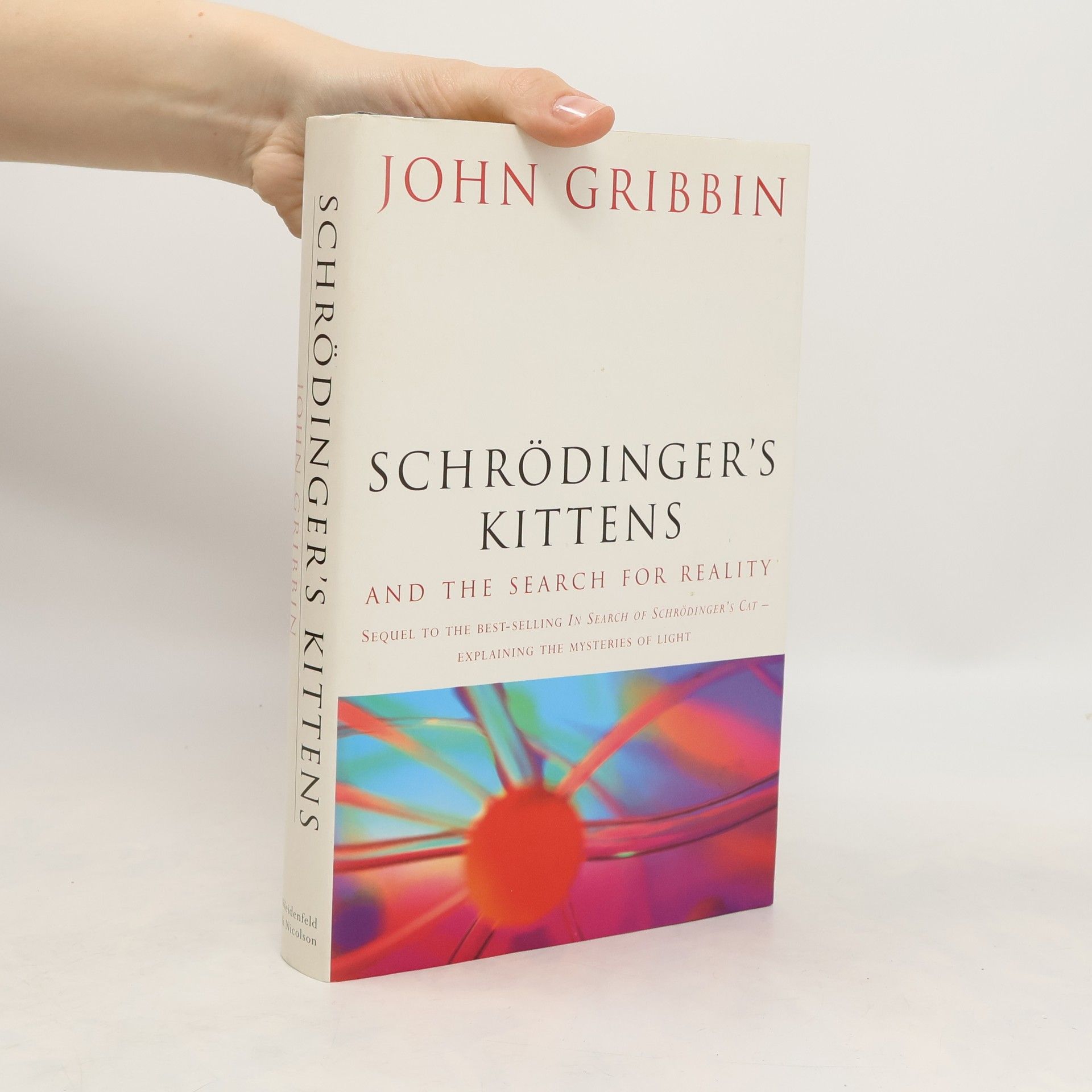John Gribbin Book order (chronological)
John Gribbin is a British science writer and astrophysicist whose work spans a vast array of topics, from quantum physics and the origins of the universe to human evolution and climate change. He is celebrated for his engaging prose, which masterfully translates complex scientific ideas for a general audience. Gribbin's writings often delve into fundamental questions about reality and humanity's place within the cosmos. In addition to his non-fiction, he also explores speculative themes through science fiction.







Exploring the bewildering realm of quantum mechanics, this book delves into the scientific breakthroughs that have shaped modern understanding of the universe. John Gribbin presents the key figures behind quantum theory and examines its implications on various fields, including molecular biology and technology. Through engaging narratives, he tackles complex concepts like atoms, radiation, and the nature of reality, culminating in the iconic thought experiment of Schrödinger's Cat. This edition celebrates the centenary of quantum theory, making it an essential read for anyone curious about the science that underpins our world.
The book explores the life and contributions of Count Rumford, a significant yet underappreciated figure in American scientific history, alongside renowned contemporaries like Thomas Jefferson and Benjamin Franklin. It delves into Rumford's groundbreaking work and his impact on the scientific community, presenting a comprehensive narrative that highlights his achievements and legacy. This fresh examination aims to elevate Rumford's status in the historical canon, offering readers an insightful perspective on his importance in shaping American thought.
Obvious questions do not always have obvious answers. John Gribbin is known for giving us simple explanations of big concepts in science. But there is another way to probe the mysteries of the Universe and our place in it. Faced with persistent enquiries from his grandchildren, Gribbin realised that simple questions, such as 'Why is the sky blue?', sometimes require big answers, understandable in straightforward language. In answering those simple questions, he discovered that he was telling the story of our place in the Universe, from the Big Bang to the evolutionary reasons why men are, on average, bigger than women. The questions may be obvious, but the answers are sometimes surprising and highlight one of the main joys of science - discovering the unexpected. In this book, Gribbin invites the reader to join him on this voyage of discovery, where you may think you already know the answers but should be prepared to be surprised - or at least, tantalised by the truth.
Quantum Computing from Colossus to Qubits
The History, Theory, and Application of a Revolutionary Science
The revolution is here. In breakthrough after breakthrough, pioneering physicists are unlocking a new quantum universe which provides a better representation of reality than our everyday experiences and common sense ever could. The birth of quantum computers - which, like Schrödinger's famous dead-and-alive cat, rely on entities like electrons existing in a mixture of states - is starting to turn the computing world on its head. In his fascinating study of this cutting-edge technology (first published as Computing with Quantum Cats and now featuring a new foreword), John Gribbin updates his previous views on the nature of quantum reality, arguing for a universe of many parallel worlds where 'everything is real'. Looking back to Alan Turing's work on the Enigma machine and the first electronic computer, Gribbin explains how quantum theory developed to make quantum computers work in practice as well as in principle. He takes us beyond the arena of theoretical physics to explore their practical applications - from machines which learn through 'intuition' and trial and error to unhackable laptops and smartphones. And he investigates the potential for this extraordinary science to allow communication faster than light and even teleportation, as we step into a world of infinite possibility.
A scintillating collection of short essays that really does cover 'life, the Universe, and everything'.
Time travel is a familiar theme of science fiction, but is it really possible?Surprisingly, time travel is not forbidden by the laws of physics - and John Gribbin argues that if it is not impossible then it must be possible.Gribbin brilliantly illustrates the possibilities of time travel by comparing familiar themes from science fiction with their real-world scientific counterparts, including Einstein's theories of relativity, black holes, quantum physics, and the multiverse, illuminated by examples from the fictional tales of Robert Heinlein, Larry Niven, Carl Sagan and others.The result is an entertaining guide to some deep mysteries of the Universe which may leave you wondering whether time actually passes at all, and if it does, whether we are moving forwards or backwards. A must-read for science fiction fans and anyone intrigued by deep science.
Simply Schrödinger
- 136 pages
- 5 hours of reading
Erwin Schrödinger's life was marked by his groundbreaking contributions to physics, earning him a Nobel Prize in 1933. Born in Vienna, he navigated a complex personal life and professional journey across Europe and the U.S., often due to his opposition to Nazism. His tenure at prestigious institutions, including Oxford and Princeton, culminated in his directorship at the Dublin Institute for Advanced Studies. Beyond physics, he explored philosophy and Eastern religions, engaging deeply with themes like consciousness and the nature of reality in his lectures and writings.
A mind-warping excursion into the wildly improbable truths of science.
A Waterstones Best Book of 2020 The theory of evolution by natural selection did not spring fully formed and unprecedented from the brain of Charles Darwin. Rather it has been examined and debated by philosophers the world over for thousands of years.
